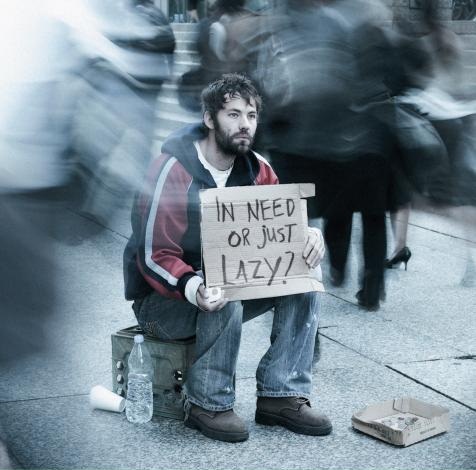
This article is the second of a four-part series by Polly Peek. The first part can be read online here or in the December-January issue of The Spark. ‘Consumer’ in this article refers to a person who currently or has previously used psychiatric services. ‘Bourdieuian’ refers to the theories developed by French Sociologist Piere Bourdieu and ‘taangatawhaiora’ is a Te Reo term that translates to ‘person seeking well-being’.
The instrumental value of employment is that it creates opportunities for mental health consumers to access additional resources to improve their health and wellbeing such as financial resources and supportive social networks. From a Bourdieuian perspective, therefore, employment allows people with experience of mental illness to beneficially increase their social and economic capital. The benefit of these resources has been expanded on in research exploring resilience factors for mental health. One example of this is a 2002 Ministry of Health publication which cites economic security as being crucial for well-being as well as the availability of opportunities. Because of the lower-than-minimum-wage rate of benefits in New Zealand society and difficulties attaining work without experience, the mental health benefits that come from economic security and accessibility of opportunities is likely to disproportionately benefit those in paid work in comparison to the unemployed.
 In terms of the intrinsic value of work in facilitating wellness and recovery, research shows that an ‘employed’ status is beneficial in that it fosters positive self-image. In her thesis on New Zealand Women’s career experiences through mental illness, Annie Southern quotes Neff (2006) that “to be able to work in a work-oriented society is to be ‘like’ others … unemployment can only exacerbate feelings of worthlessness and low self-esteem”. Additional research has found that work can facilitate wellbeing and recovery by providing identity outside of the family unit, enhancing positive self-concept, feelings of mastery through acquiring new skills, feeling of being ‘normal,’ and increasing confidence.
In terms of the intrinsic value of work in facilitating wellness and recovery, research shows that an ‘employed’ status is beneficial in that it fosters positive self-image. In her thesis on New Zealand Women’s career experiences through mental illness, Annie Southern quotes Neff (2006) that “to be able to work in a work-oriented society is to be ‘like’ others … unemployment can only exacerbate feelings of worthlessness and low self-esteem”. Additional research has found that work can facilitate wellbeing and recovery by providing identity outside of the family unit, enhancing positive self-concept, feelings of mastery through acquiring new skills, feeling of being ‘normal,’ and increasing confidence.
Along with reported improvements in self-esteem and feelings of wellness and competence, clinical improvements have also been shown to be correlated with employment. Hospital admissions and length of stays, relapses, use of medication and psychiatric symptoms can be reduced if people with mental illness are employed. Research that proves the benefit of employment for recovery in this way supports the view that “it is rehabilitatively useful for people with even severe and prolonged psychiatric illness to be in work” (VandenBoom & Lustig, 1997). This is also supported by a number of consumer definitions of recovery published on the Centre For Recovery Awareness website which equate recovery with occupation – “working is recovery” (Share Centre patron), or with activities that induce feelings of contribution, purpose and meaning – “recovery is living-not surviving” (Recovering Mental Health Client), “volunteering is recovery” (Share Centre patron), “recovery is a purpose outside one’s self” (Psychiatric patient).
These occupational understandings of recovery fit with the findings of qualitative research undertaken by Kelly, Lamont and Brunero looking at the recovery experiences of consumers participating in a task-orientated support group, GROW. In this paper, occupation was understood to be “the doing of any activity by a real person at a specific point in time, whereby engagement in the occupation has the opportunity to influence purposefully one’s culture” (Kramer et al, 2003, cited in Kelly et al) so did not focus on paid employment, rather capturing the experiences of these volunteer peer support workers. One participant commented on the confidence he had gained saying “If this group of people were willing to accept me as their organiser, maybe I can do a lot of other things as well.” Another participant alluded to the potential occupational opportunity has for the recovery of people experiencing acute mental health issues, “I know people in 4A [psychiatric unit], they’d love to be able to swing their legs out of bed and wash the floor and why ‘cause they’d have something to do.” In terms of paid employment, a Mental Health Foundation Study also based on qualitative data found that “employment was a positive experience” for the people interviewed (Peterson, 2007.

Supporting the idea that work is beneficial to mental health, is research which indicates unemployment “tends to have a significant adverse effect on both physical and mental health” for the majority of people (Acheson, 1998). This relates to long-term unemployment where studies have found substantial deterioration of mental health when measured for minor psychiatric morbidity over the first six months of unemployment and a slight decline for the following two year period. Mental health is also impacted at the time of job loss where the person feels overwhelmed with a sense of hopelessness. Evidence also exists highlighting that for those moving from unemployment into paid employment , an increase in well-being is likely especially where the position taken on is permanent.
This anecdotal and empirical evidence indicates the benefits of employment, or work in the broader sense, for mental health consumers’ wellbeing and recovery, including the decreased need to use mental health services. In light of this, we may expect that the employment rate for people with mental illness to be level with or greater than that of the general population, as taangata whai ora pursue wellness and recovery. Despite the evidence of benefits associated with meaningful activity and contribution, unemployment rates for people with experience of mental illness are considerably high. Less than half of the mental health consumer population in New Zealand were in employment at the time of a study by Jenson, Sathiyandra, Rochford, Jones, Krishnan and McLeod. The researchers found the level of employment amongst mental health consumers to be 44%, with approximately 27% being full-time employees.
For a number of reasons such as employment discrimination and its structual basis, this makes people with experience of mental illness to be amongst those disability groups with the lowest levels of employment.
Continue to part 3
One Reply to “The Dialectical Relationship between Work and Mental Health: part 2”
Comments are closed.

Great post! We are linking to this great content on our website.
Keep up the great writing.